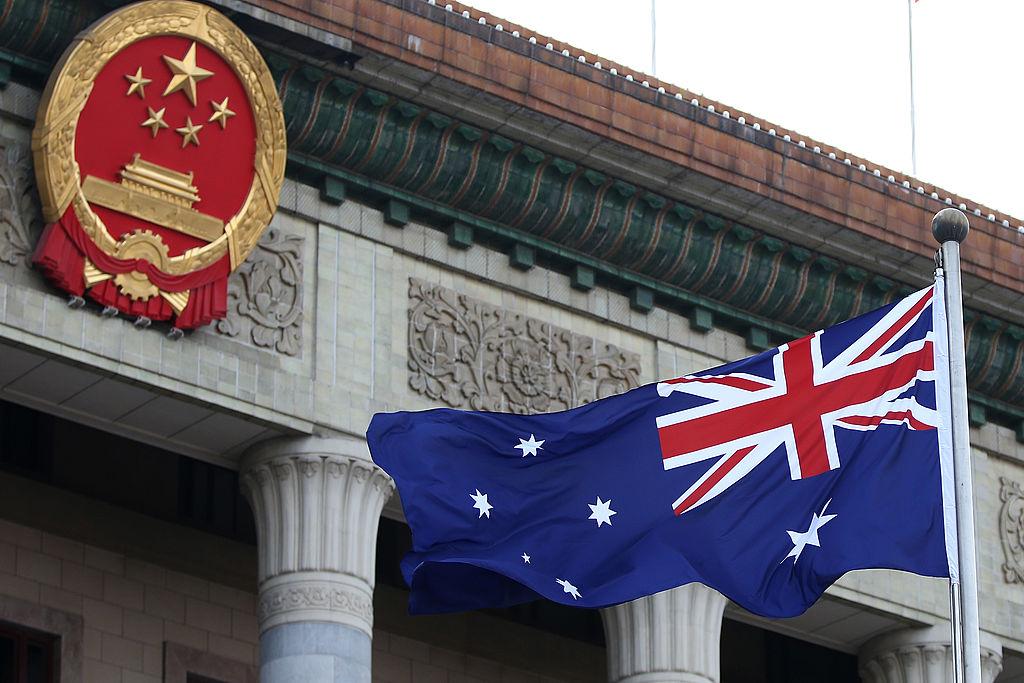
The Albanese government is barely one day old and already China’s Premier Li Keqiang is calling for Labor to make ‘the right choice’ to overcome strained bilateral relations and commentators are asking whether Australia can engineer a ‘reset’. This is the wrong question.
The better question is how the new government can constructively manage the tension that inevitably arises from setting boundaries and defending Australia’s values and interests. This is why it was so vital that Anthony Albanese made clear that the relationship ‘will remain a difficult one’ as he attended the Quad leaders’ meeting in Tokyo, just one day after being sworn in as prime minister. ‘It is China that has changed, not Australia, and Australia should always stand up for our values, and we will do so in a government that I lead,’ he said.
It’s almost exactly five years since Australia initiated its strategic realignment with China.
In June 2017, Prime Minister Malcolm Turnbull told the Shangri-La Dialogue that preserving the rules that had ensured Australian and regional stability ‘means competing within the framework of international law not winning through corruption, interference or coercion’. He said ‘we need to make the choices that are necessary not only to keep the peace but also preserve the freedom to be ourselves’. This was the real ‘reset’ – an initiative to build long-term national resilience by resetting the terms of engagement with our biggest trading partner.
Six months later, the Turnbull government introduced the Western world’s first counter-foreign-interference legislation, with bipartisan support. In August 2018 Australia banned Chinese telecommunications company Huawei from participating in Australia’s 5G network. In September 2019, the Quad met at the foreign ministers’ level and was elevated to leaders’ level in early 2021. In September 2021, Australia established the trilateral AUKUS security partnership with the US and UK. In December, Australia joined the Global Magnitsky movement.
None of these strategic decisions were forced upon Australia by crisis events. All of them were opposed by commentators and interest groups at the time. But they were advanced—with bipartisan support—because they were in the long-term national interest.
The policies, laws and global networks that were rolled out over the past five years have given Australia solid foundations for the geostrategic competition which is now playing out openly all around us.
Along the way, Australia, and our allies, have had missteps and setbacks—from the Northern Territory government’s lease of Darwin Port to the US withdrawal from the Trans-Pacific Partnership and the UK choosing Huawei to help build its 5G network.
Like most of our democratic partners, we have at times combined complacency with defeatism, both resulting in inaction. There is a streak in the Australian foreign policy community that consistently argues that there is no threat and, if there is, there is nothing we can do about it.
The foreign policy establishment’s elevation of engagement as an end in itself resulted in a ‘soft power’ with a lack of stomach for tensions in international relations and a lack of stamina when things go wrong. The impulse of inaction runs deep. This is why—until recently—China had grown to treat Australia as its intelligence playground, with ASIO Director-General Mike Burgess confirming this year that ‘espionage and foreign interference has supplanted terrorism as our principal security concern’.
The China–Solomon Islands security agreement is the latest striking manifestation of inaction over decades. It is a symptom of China’s elite capture. The end game is to push out US and allied interests, achieve regional hegemony, create vassal states, control access to supply chains and improve its ability to take Taiwan with minimal costs.
However, the Solomons pact does not mark the end of Australia’s influence in the Pacific. To the contrary, it is another opportunity for Australia to galvanise and build on the advances of the last five years.
The good news is that Australia and our partners have consistently placed long-term interests above the short-term seduction of money and inaction (even if it has sometimes taken a while). The strategic stumbles referred to above led directly to stronger foreign investment laws, the resurrection of the TPP and the reversal of the UK’s 5G decision.
Five years of strategic bipartisanship from Albanese, Foreign Minister Penny Wong and former opposition leader Bill Shorten means we are well placed to counter current and emerging threats and respond to inevitable setbacks along the way.
And history teaches us that strategic decision-making requires us to speak up and act when we can—not only when we are forced to.
US President Woodrow Wilson did not help his country or the world by waiting three years before coming to the realisation in April 1917 that ‘neutrality is no longer feasible or desirable’.
Neutrality serves the authoritarian. The imperative of preventing war in the Indo-Pacific requires that we continue our ‘reset’ away from the default of inaction—a learned helplessness driven by complacency and a fear of upsetting China—to a doctrine of actively embracing competition and contestation.